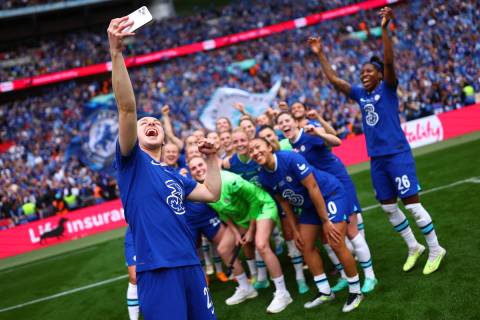A long-awaited merger of Vodafone and Three will bring “the biggest shake-up in the UK mobile market for over a decade,” experts say – with significant consequences for all anyone in Britain using a device.

The £15bn deal will see the two firms combine to make one of Europe’s biggest operators, with about 27 million customers and more than 11,500 staff.
Margherita Della Valle, chief executive of Vodafone, called the deal a “gamechanger” that will create a more sustainable business that support the cost of rolling out upgrades to 5G.
But will it benefit customers, or harm them? Here’s everything you need to know about how the possible deal might shakeup the mobile market.
What is happening?
Vodafone and Three – both relatively small phone networks in the UK – will merge, with Vodafone owning 51 per cent of the combined business. It’s not clear yet what the new company will be called.
Regulators still have to approve the deal, so the merger is not guaranteed.
If it goes ahead, it will be completed before the end of 2024, the companies said.
“This long-awaited mega merger represents the biggest shake-up in the UK mobile market for over a decade,” said Kester Mann, director of consumer and connectivity at CCS Insight.
Trade union Unite said the government “must step in and stop this reckless merger”, arguing it will lead to job losses and push up bills.
What does it mean for customers?
The companies are looking to position the deal as great for its customers. It says that it will immediately lead to a “better network experience with greater coverage and reliability at no extra cost, including through certain flexible, contract-free offers with no annual price increases, and social tariffs”.
Over the long term, it is not clear how the company intends to bring those customers together. When EE and T-Mobile merged into EE, for instance, the two customer groups initially stayed separate and then gradually became integrated.
Paul Carter, CEO of mobile intelligence provider GWS, said Vodafone and Three are “both lagging in terms of internet performance between broadband and mobile services,” while “Virgin Media O2 are currently leading the way in terms of the overall combined connectivity consumers’ experience.”
He added: “On paper this merger makes sense for two companies looking to close the gap on competitors. However, it remains to be seen whether it will bring success.”
What does it mean for people who aren’t Three or Vodafone customers?
Those behind the merger argue that it will help everyone else, too. Della Valle insisted it the merger is “great for the country and great for competition,” thanks to the £11 billion investment the new company has promised for the UK, to help “create one of Europe’s most advanced standalone 5G networks”.
It is argued that the mobile market will become more competitive, with another large operator in it. In theory, that could lead to better prices and deals for everyone – though there is of course no guarantee of that.
Will prices go up for existing or new customers?
It’s difficult to know this far out. Bigger companies have more power, which they can use to try and drive prices higher – but they also have more scale, which they can use to be more efficient and reduce prices.
Both companies have recently increased prices significantly, above inflation, which might be a clue to how they intend to behave in the future. But they may argue that the deal would allow them to avoid similar rises in the future.
This will be the question that regulators grapple with as they probe whether the deal should go ahead. If they cannot be convinced that the merger will lead to better conditions for customers, then they will look to stop it.
Rocio Concha, Which?’ director of policy and advocacy, said: “Reducing the number of network providers from four to three risks reducing the choices available to consumers, raising prices and lowering the quality of services available.
“The Competition and Markets Authority needs to conduct a thorough assessment to determine whether this merger will be harmful to consumers.”
Will the deal go ahead?
There is still a good chance that regulators will stop the deal from going ahead. They did the same when Three attempted to take over O2 in 2016, citing the risk that the deal would lead to higher prices.
“This will be a hard sale given that both companies have been outperforming the market for the last year or so,” said Paolo Pescatore, from PP Foresight.
“Let’s see if the authorities have a change of heart. Both parties need to demonstrate that this is genuinely in the interest of UK plc, the economy, and consumers for it to have a chance of getting over the line.”
Read MoreVodafone and Three are merging – is it time for a better mobile phone deal?
McDonald’s, Delta among websites down after Amazon Web Services cloud crashes
Major finding boosts hope for finding alien life in our solar system
Breakthrough could soon allow us to actually use quantum computers, scientists say
